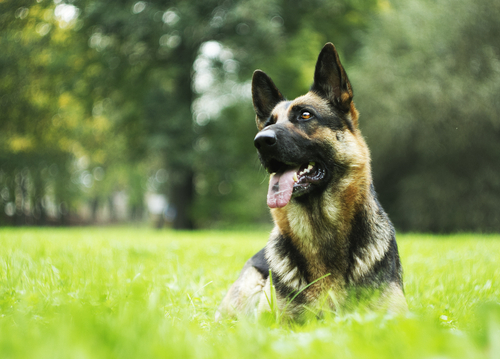Mankind has a way of taking something great and trying to make it greater. Our belief, as a species, that we can improve on nature has gotten us into trouble over the years. The problem is that in our arrogance, we seem to get more than we bargain for.
Genetics are extremely complex and no single trait can be prioritized with selective breeding without the other traits that reside on the same gene being selected as well.¹

So when we try to control how our dogs grow, look and act, we get some unwanted consequences. Almost every breed has its genetic watch list. From hip dysplasia to epilepsy, there are numerous disorders that have been shown to be heritable.² Mixed breed dogs can also carry genetic mutations, but these are strong breed predilections for many diseases and maladies.
There are so many genetic linked diseases in purebred dogs that I cannot list them all here, but those shopping for a purebred dog should certainly research the breed, as well as the breeder and his/her lines of dogs. Scientists that have done the work on some of these diseases have advised that not only should line breeding be avoided (which has been the advice to this point), but we should make a concerted effort to enlarge our breeding populations, rather than select for only those individuals that best meet the published breed standards.

The fact that a purebred dog is statistically more likely to carry a genetic malformation that results in a disorder cannot be denied. Choosing dogs that meet a very strict standard for breeding has created a population bottleneck that has allowed undesirable traits to concentrate. Our current breeding standards need to be revised to help reduce the danger of further concentrating disease in our dogs.
As for those of us who are looking for a friend, your best bet for genetic health is selecting a mixed breed dog rescued from a shelter or saved from homelessness and make sure that you include your veterinarian in your decision. He or she has experience in dealing with breed associated disease and knows what to look for.
Join the conversation and find me and other dog lovers on Facebook by clicking here.
- Proc Natl Acad Sci U S A. 2015 Dec 22. pii: 201512501. [Epub ahead of print] Bottlenecks and selective sweeps during domestication have increased deleterious genetic variation in dogs.Marsden CD, Ortega-Del Vecchyo D, O’Brien DP, Taylor JF, Ramirez O, Vilà C, Marques-Bonet T, Schnabel RD, Wayne RK, Lohmueller KE.
- BMC Vet Res. 2015 Aug 28;11:175. doi: 10.1186/s12917-015-0463-0.International Veterinary Epilepsy Task Force’s current understanding of idiopathic epilepsy of genetic or suspected genetic origin in purebred dogs. Hülsmeyer VI, Fischer A, Mandigers PJ, DeRisio L, Berendt M, Rusbridge C, Bhatti SF, Pakozdy A, Patterson EE0, Platt S, Packer RM, Volk HA.
